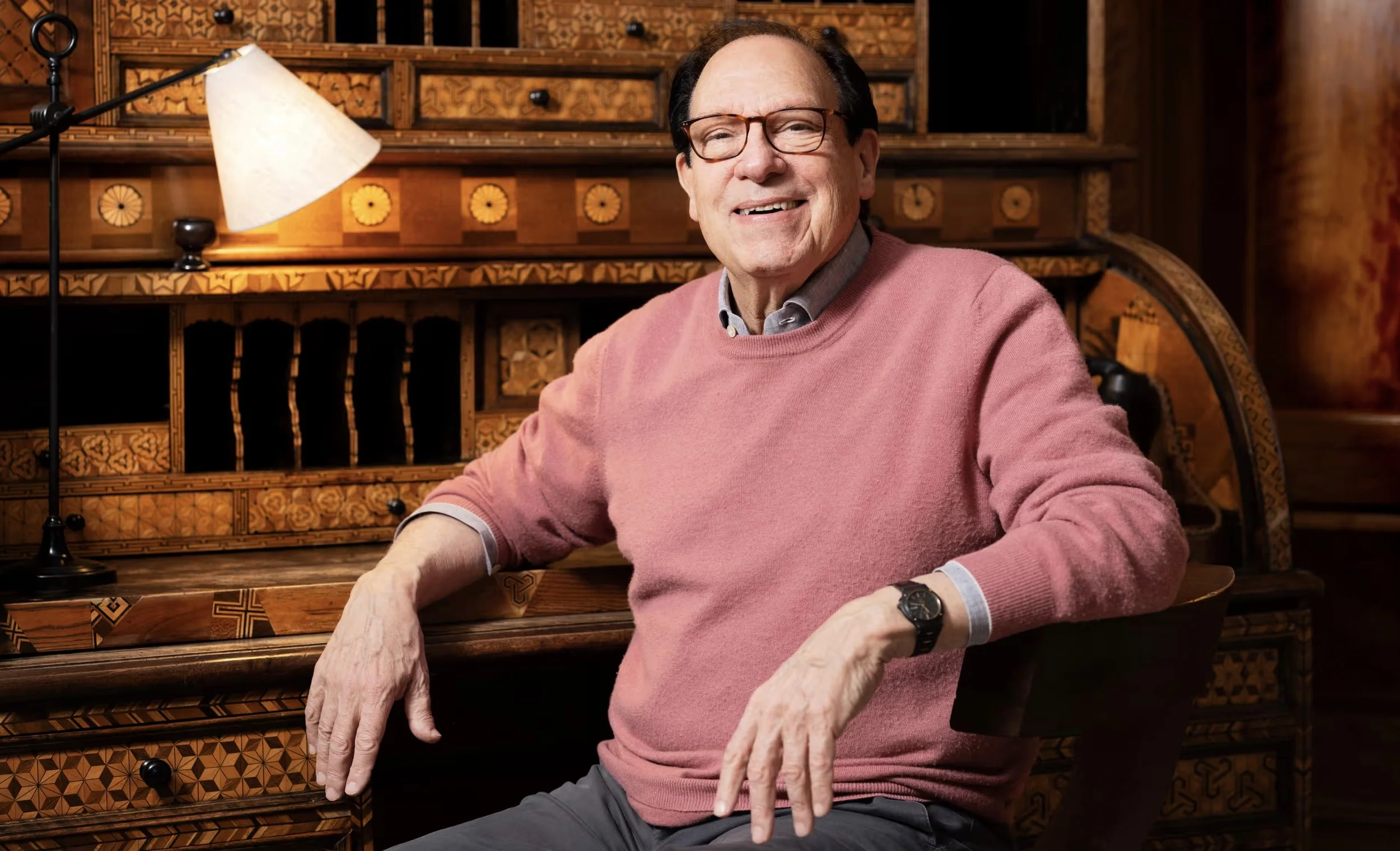Guardian Interview: Ken Ludwig on the secret to adapting Agatha Christie
‘Poirot seems like this fussy, pompous fellow who’s not going to cause you much trouble and then suddenly he’s got ya’ … Ken Ludwig. Photograph: Linda Nylind/The Guardian
The US playwright and anglophile behind much-revived comedies has a flair for crime and is following a crowd-pleasing Murder on the Orient Express with Death on the Nile
By Mark Lawson
If you ever face a quiz question about the most performed theatre writers in the world, likely to have a play on somewhere every day, William Shakespeare, Andrew Lloyd Webber and Agatha Christie are all reliable answers but a fourth may surprise you: Ken Ludwig. He also has intriguing connections with the other three.
The popularity that made the American wealthy enough to have donated £1m to the Shakespeare Birthplace Trust is partly due – apart from his own much-revived comedies, Lend Me a Tenor (1986) and Moon Over Buffalo (1995) – to Christie. Ludwig’s 2017 adaptation of Murder on the Orient Express has had hundreds of productions and is currently touring the UK. We meet when he is in London for a workshop on a second Hercule Poirot adaptation, Death on the Nile, which premieres in September.
This lucrative sideline began a decade ago with a phone call from Mathew Prichard, Christie’s grandson: “It was out of the blue. He told me that, for the first time in many decades, they wanted to adapt one of the novels for the stage and I could have free choice. I chose Murder on the Orient Express because it was the most popular title and so I thought more people would go to see it.”
Did it worry him that the novel also has one of her most famous solutions? “That’s been interesting. Real Agatha Christie fans will know but I think 80-90 per cent of the audience doesn’t: they’re people who like mysteries or just want a good night at the theatre. When we did Murder on the Orient Express, it surprised me how surprised people were at how it turned out.”
That play involved putting a train on stage and now Death on the Nile requires a boat. Does he not like designers? He laughs: “I trust them! Sometimes, writing plays, I think ‘that’s going to be hard to stage’ but then I think: no, no, theatre artists love challenges. So now I think: just go and figure it out! They come up with solutions you could never have imagined.”
Murder on the Orient Express is just under 300 pages and Death on the Nile just over but Ludwig has a clear sense that both should yield two hours of stage time: “The books are not novellas but not epics. We went to [James Graham’s] Dear England last night and that’s two hours 50 minutes and worth every second. But, if you did that with a mystery that’s supposed to be moving along swiftly, that would be pretty hard to sustain.”
Given the complexity of Christie’s plotting, does he draw maps and time schemes? “I don’t do that. But, whether it’s the adaptations or my own plays, I take enormous numbers of notes on legal pads because they are longer than usual note pads.”
Turning to murder from comedy, Ludwig was struck by the structural similarities: “Maybe that’s why they are the two things I’ve done most of. In comedy and in cosy crime, all these things go up in the air, come down again, break but then eventually everything is ordered and calm again.”
Murder on the Orient Express has a 40-minute explanatory monologue for Poirot – meticulously delivered by Henry Goodman at Chichester in 2022. Such pressure on the audience’s attention, Ludwig admits, “is a risk. But it was born out of practicality … You have to be taken inside Poirot’s brain and how he ruled out all those possibilities before getting to the point of accusation.”

